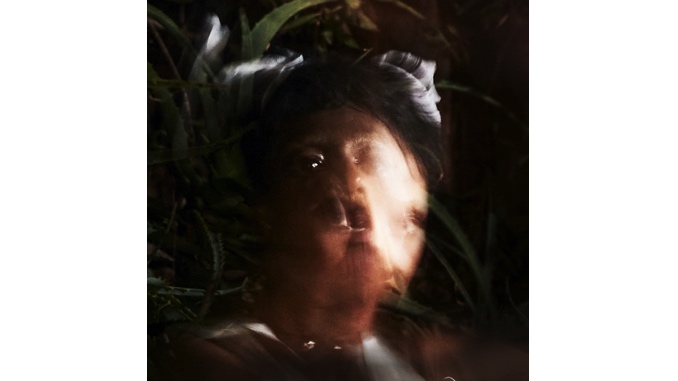Santigold Dares a Brush with the Unknown on Spirituals

Most pop music revolves around the examination of the self: Songwriters build soundscapes to score the course of our relationships, the moments where we reckon with our emotions and our impressions of the world around us, bearing it all in hopes that we’ll see our reflection in the mirror they hold up to us. Most write to examine the artist as a human being, lowering themselves to our level in terms of universal emotions, but over the past 15 years, Santi White has searched for a way to do the reverse—to capture the human as an artist. Even her work that could be considered “confessional” elevates her first-person narrative to something bigger than herself, as if ego death is essential to saving her creation.
Following the dissolution of her band Stiffed in 2006, with whom labels told her that “Black, female, punk artists would just never happen,” she emerged as a solo artist under the moniker Santogold (later changed to Santigold) during the lawless musical peak of MySpace. The thrashing, electronic upheaval of her debut single “Creator” established White’s art-over-ego ethos, but its b-side, “L.E.S. Artistes,” an evergreen, biting critique of faux-bohemian social climbers in New York’s music scene, outlined the self-sacrifice she was willing to make: “I can say I hope it will be worth what I give up / If I can stand up mean for the things that I believe.”
Pulling as much from dancehall vocalists like Sister Nancy as she does the weirdo art-punk of a band like Devo or the early hip-hop she heard growing up in Philadelphia, each Santigold release builds upon a collage of ever-evolving influences in her quest for something beyond the individual. Her first full-length project in four years, Spirituals, completes the next logical step in that evolution. Both the hooky pop confections of prior studio album 99¢ and the blaring sirens over Afro-Caribbean-inspired beats of her 2018 mixtape I Don’t Want: The Gold Fire Sessions are absent. Still, the final results are far from minimal, building temples to that same transcendence White’s been chasing since the beginning, with layers of percussion and manipulated vocals coloring the final product. With a stacked team of producers and collaborators behind her (including Rostam, Dre Skull, Nick Zinner of Yeah Yeah Yeahs and SBTRKT, to name a few), the placement of each beat or vocal melody feels intentional, with White’s distinct delivery acting as the glue that binds the whole thing into a cohesive project worth sitting with (or dancing to).
By the artist’s own account, Spirituals is a reinvention, both of Santigold as a creative project and of the type of music that has historically sustained people enduring hardship. Referencing the spirituals sung by enslaved Black people with the title, her version of transcendence this time around not only rises above genre, but also above the lack of physical freedom that she had experienced in quarantine while caring for her three children. At its best, the record reaches that peak of peering over what holds its creator in captivity, ascending past rigid genre descriptors to create something familiar to fans while still pushing the envelope.
Opener “My Horror” creates a clear tie between the tropical atmosphere of I Don’t Want and the darkness of the songs to follow; vocals that sound like animatronic angels sigh against clean, echoing guitar as White recounts the effects of her unending captivity (“Hey you, hey you / Think I got a, a hole in my head / I think all the numbness finally sank in / It’s making my head decay, head decay”) before the song cuts itself off abruptly. The piercing synths of “Ain’t Ready” and hypnotic groove of “No Paradise” carry a similar tension between music and lyrics, with the latter building a monument to human resilience while introducing hook after hook interwoven into group chants. “People suffering, they suffering / Down and we keep shuffling,” she sings over the deceptively buoyant beat, “Don’t know where but go-going / There’s power in our struggle.”
-

-

-

-

-

-

-

-

-

-

-

-

-

-

-

-

-

-

-

-

-

-

-

-

-

-

-

-

-

-

-

-

-

-

-

-

-

-

-

-








































